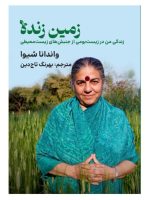1907–1990)
Italian writer, whose novels and short stories display his narrative skill and psychological insight.
Moravia was born of Jewish stock in Rome, the setting for most of his stories. He began to write after he became ill with tuberculosis at the age of sixteen and had to spend two years in various sanatoria. On recovering he became a journalist, first in Turin and then in London. His first novel, Gli indifferenti (1929; translated as The Time of Indifference, 1953), was a sensational success; like most of his work it deals with the moral degeneracy and spiritual aridity of the middle classes. Such themes were not well received in fascist Italy and during World War II Moravia and his wife, the novelist Elsa Morante (1918–85), spent some time in hiding from the fascists, an experience mirrored in Moravia’s novel La ciociara (1957; translated as Two Women, 1958).
Disillusionment and alienation, especially in sexual relations, are constant topics in Moravia’s novels and short stories. Of the novels, some of the best known are La mascherata (1942; translated as The Fancy Dress Party, 1948), La romana (1947; translated as The Woman of Rome, 1949), La disubbidienza (1948; translated as Disobedience, 1950), Il conformista (1951; translated as The Conformist, 1952), La noia (1961; translated as The Empty Canvas, 1961), and L’attenzione (1965; translated as The Lie, 1966). His short stories include Racconti romani (1954; translated as Roman Tales, 1956), which won the Marzotto Prize in its year of publication, Nuovi racconti romani (1959), L’automa (1961), Una cosa è una cosa (1966) and Io e lui (1971; translated as The Two of Us, 1971). In 1961 he was awarded the Viareggio Prize for his work as a whole. Among his other writings are the collection of essays on life and literature entitled L’uomo come fine e altri saggi (1963; translated as Man as an End, 1966), several plays, and a book on the Cultural Revolution in China (1967). He became a member of the European Parliament in 1984.







